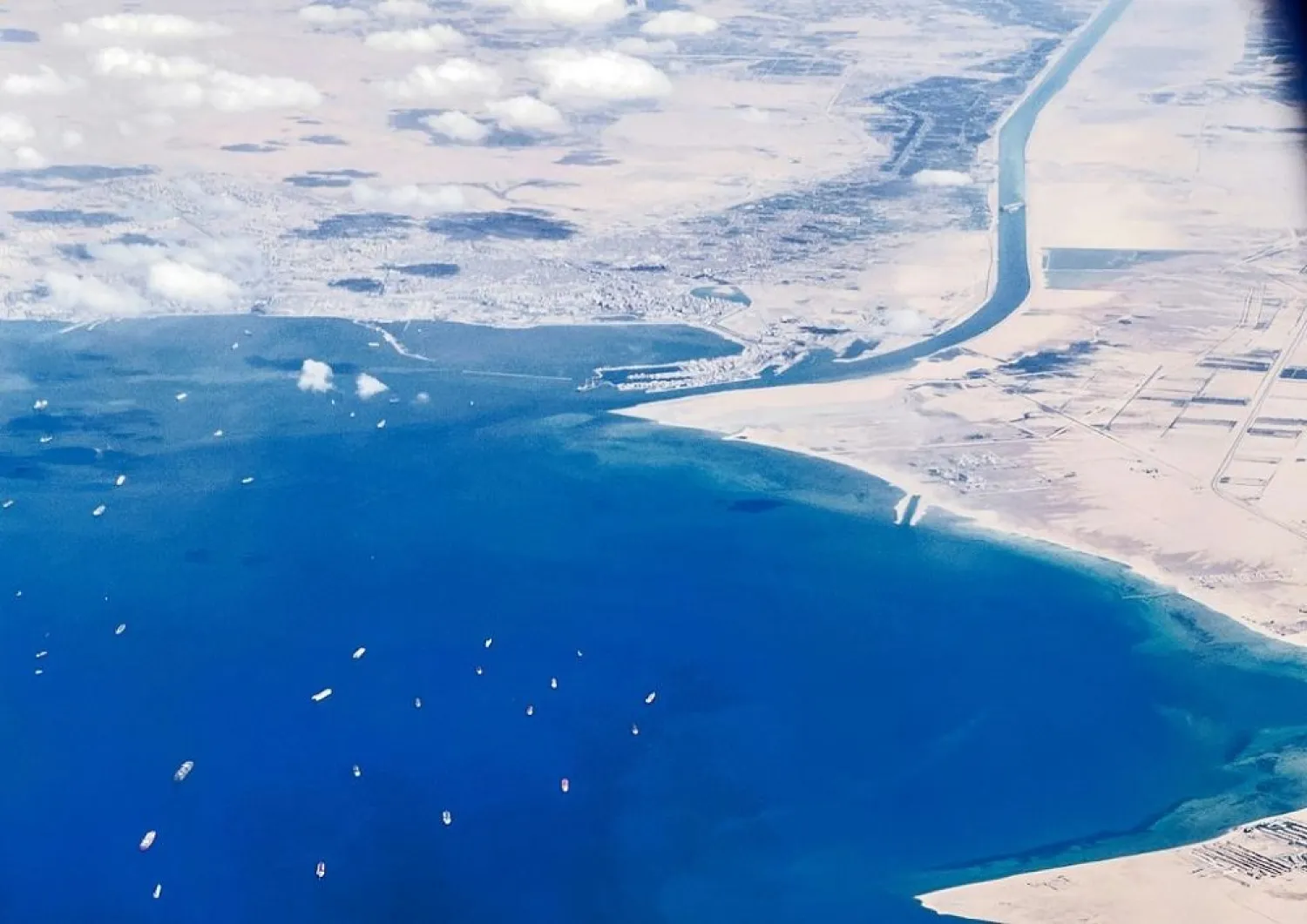Egyptian President Abdel Fattah al-Sisi pledged Tuesday investment to avoid any repetition of the past week's closure of the Suez Canal as he paid a celebratory visit to the reopened trade artery.
The promise came a day after the refloating of the giant container vessel MV Ever Given, which hit the eastern bank of the narrow shipping lane last Tuesday and became wedged diagonally across its span for nearly a week.
"We will acquire all the necessary equipment for the canal" to avoid similar incidents, Sisi said during a visit to Ismailia, home to the Suez Canal Authority.
He did not specify what hardware would be bought, but SCA chief Osama Rabie has cited the need for both dredgers and new tugboats in comments to media.
Egyptian authorities have presented the freeing of the megaship as a vindication of the country's engineering and salvage capabilities.
Traffic on the canal, a conduit for over 10 percent of world trade, began moving again on Monday evening, after tailbacks totaling 425 ships built up to the north and south.
On Tuesday morning, maritime tracking sites showed ships with capacity of up to 200,000 tons -- a similar size to the Ever Given -- navigating the narrow waterway.
Widening ruled out
But many more cargo ships were seen waiting at its two entrances, in the Mediterranean and the Red Sea. The SCA says it will take over three days for the tailbacks to clear.
Maritime data company Lloyd's List said the blockage had held up an estimated $9.6 billion worth of cargo each day between Asia and Europe.
The near week-long blockage has left Egypt facing scrutiny over how to avoid another similar crisis.
But both Sisi and the SCA have been quick to rule out a widening of the southern section of the canal, where the blockage occurred.
"Economically, it would not be useful," he said.
Egypt spent more than $8 billion on widening a segment and creating a second lane on a northerly stretch in 2014-15.
Professor Jean-Marie Miossec, a maritime transport expert at France's Paul-Valery University in Montpellier, said it would "be prudent... to only authorize (passage) by small and medium sized ships at nightime," restricting oil tankers and other very large ships to daylight hours.
The giant Panamanian-flagged vessel operated by Taiwanese Evergreen Marine Corporation was stranded after running aground on the east bank of the waterway in a sandstorm.
Helped by tugboats, it has been shifted out of the path of other ships, and was anchored late Monday ahead of an investigation.
"The owners and operators of the... ship and other interlocutors will be involved" in the probe, Angus Blair of the American University in Cairo, told AFP.
The clearance operation required over 10 tugs, as well as dredgers.
"Between 180 and 200 people worked tirelessly 24 hours a day" on site, a canal official told AFP on condition of anonymity.
Picking up the tab
Ahmed Abbas, a Suez Canal employee, shared live footage from the scene on his Facebook account as the ship was refloated, exclaiming: "Praise be to God, the vessel is finally out! Well done to the SCA boys!"
Up to "2,000 workers" provided "outside services", the employee added.
"The determining factor is that we dug deeper under the bow of the ship and widened to form a pool of water below" at a depth of about 12 meters (yards), he revealed.
Elsewhere, salvage teams dug up to 18 meters.
Egypt lost between $12 and $15 million in revenues for each day the waterway was closed, according to slightly revised SCA figures.
It is seeking to recover some of its losses, stretching also to damage to the canal generated by the intensive rescue efforts.
"Litigation is likely to ensue to determine legal responsibility for the Ever Given blocking the canal," said Marcos Alvarez of credit ratings agency DBS Morning Star.
"Indications are that the responsible partners would include the owner of the ship, its operator, and the Suez Canal Authority, which requires local pilots to guide ships through the canal."
The crisis forced shipping firms to choose between waiting or rerouting vessels around the southern tip of Africa, which adds 9,000 kilometers (5,500 miles) and more than a week of travel to the trip between Asia and Europe.









